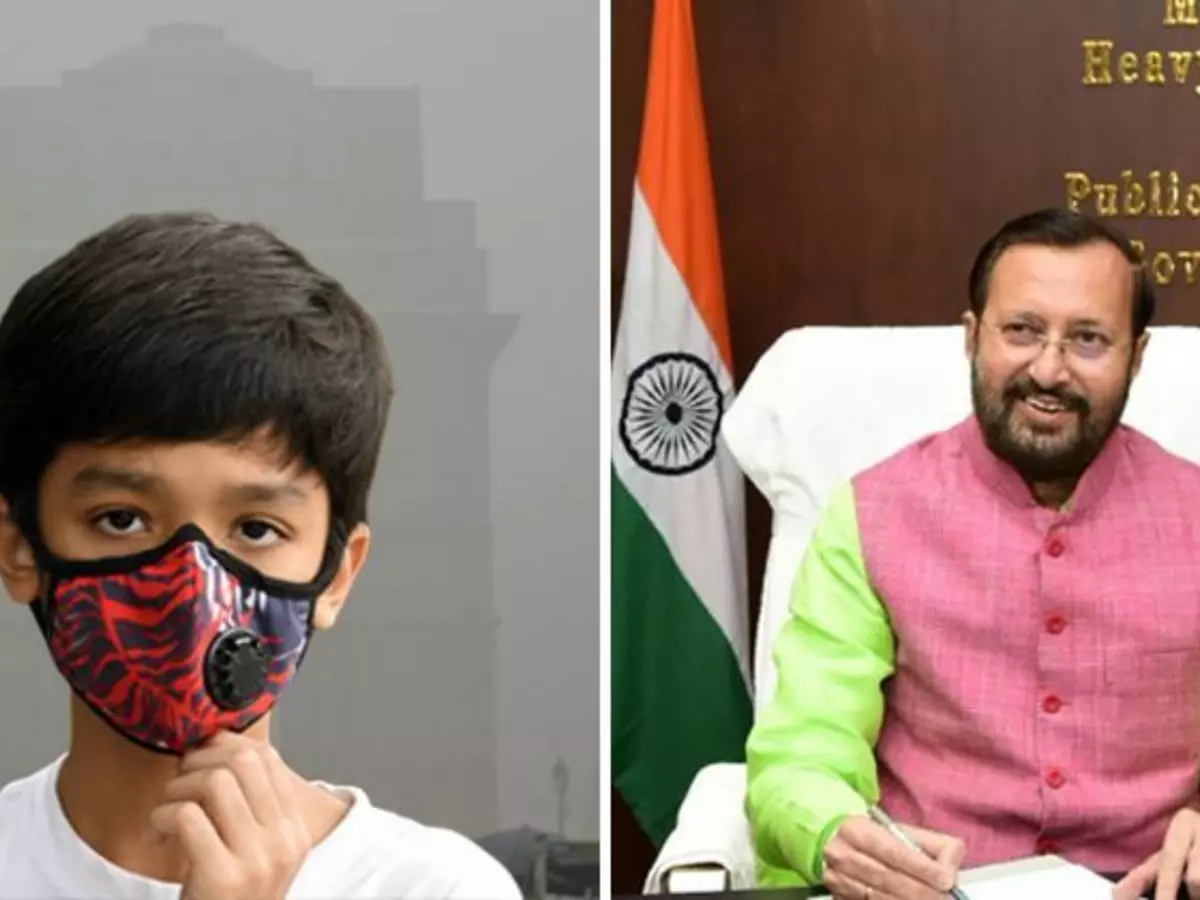While There Is No End To #AirEmergency, Environment Minister Prakash Javadekar Gets New Ministry
Prakash Javadekar took charge as the Minister of Heavy Industries and Public Enterprises last evening.

Images of smog-laden skies of Delhi are now synonymous with the historic city that India¡¯s national capital is. Over the past couple of years, the arrival of winter brings added woes in the form of rising air pollution all over the Indo-Gangetic plains in north India that are home to hundreds of thousands of the nation¡¯s population.
This year, the pollution level rose to toxic levels just as the air quality deteriorated continuously. Health organisations and pro-environment groups continue to warn. They have contended that living in Delhi is equivalent to smoking dozens of cigarettes on a daily basis.

Over a month since the clear blue skies disappeared from Delhi and we see no relief in sight.
But guess what, the government does not seem to regard the environment as an important issue at all. What else would justify its latest move to add to the responsibilities of the environment minister?
Prakash Javadekar took charge as the Minister of Heavy Industries and Public Enterprises, two days after Shiv Sena leader Arvind Sawant resigned from the Union Cabinet.
Javadekar also holds information & broadcasting, and environment, forest and climate change portfolios. Speaking to reporters here, Javadekar said he hoped the additional charge was for a temporary period and there will be a regular arrangement in place thereafter.
Assumed office in the Ministry of Heavy Industries & Public Enterprises today. pic.twitter.com/XlL6wK5hNg
¡ª Prakash Javadekar (@PrakashJavdekar) November 13, 2019
¡°I have assumed charge of heavy industries and the related ministries. I hope it¡¯s for temporary period because there will be a regular arrangement thereafter. But, as I was asked I have assumed the charge and will start functioning right from today (Wednesday),¡± Javadekar told reporters.
How can we expect concrete and long-term solutions when there is no seriousness on the part of the government to tackle the crisis. Now, there should have been a proactive role played by the state and central governments to help combat this situation and contain the spread of smog in the national capital.

The environment ministry should have been at the forefront of this endeavour but that seems further from the truth. Javadekar had himself kicked up a storm earlier by urging the citizens to start their day with music. He did so when the overall AQI stood at 430 in and around the national capital.
Now that he has added responsibilities in his basket, it would not be pre-mature to assess that his involvement, focus and time for issues related to the environment will see a further fall. He has rightly hoped that it should be a temporary addition.
